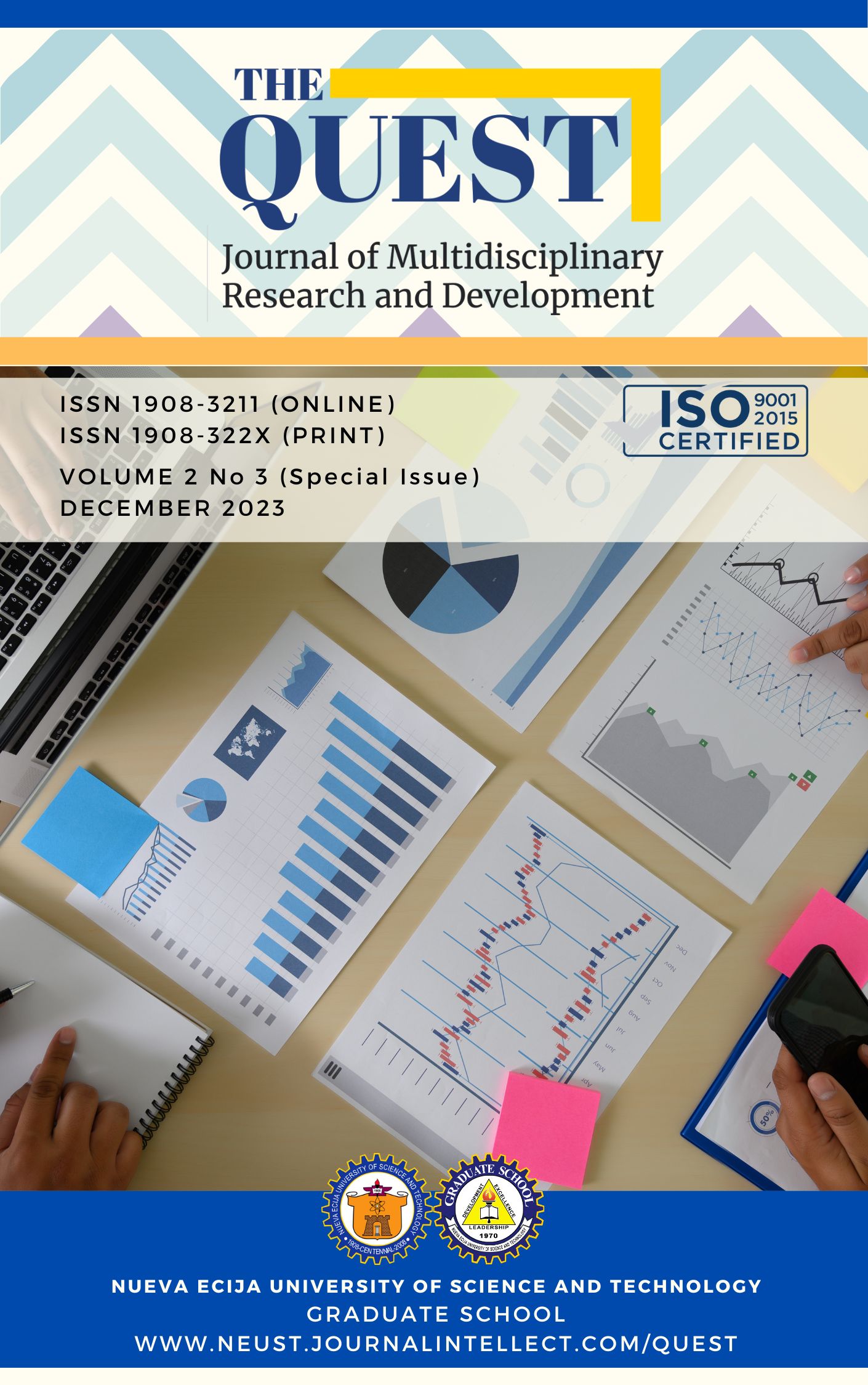Philanthropic Program and Consumer Brand Evaluation of Transnational Companies: Basis for Strategic Plan

Published 12/30/2023
Keywords
- Brand evaluation; Consumer perceptions; Corporate philanthropy program; Satisfaction; Transnational companies
How to Cite
Copyright (c) 2023 The QUEST: Journal of Multidisciplinary Research and Development

This work is licensed under a Creative Commons Attribution-NonCommercial 4.0 International License.
Abstract
This study delved into the repercussions of transnational companies' philanthropic endeavors on consumer brand evaluations in China, shedding light on key insights. It emphasized the critical nature of disaster relief and environmental protection as focal points for corporate philanthropy, stressing the necessity of financial and technological support in these realms. The study highlighted the pivotal role of social media in disseminating information about philanthropic activities effectively. Additionally, it identified education, healthcare, and poverty alleviation as paramount areas for corporate philanthropy, aligning with consumer expectations and societal imperatives. Through rigorous quantitative analysis, the research revealed that corporate philanthropy positively impacts various facets of brand performance, encompassing satisfaction, loyalty, attractiveness, competitiveness, and innovativeness. Strategic philanthropic donations and well-timed initiatives were found to significantly bolster brand image and trust among consumers. However, the study underscored the importance of sustaining engagement in philanthropic efforts over the long term to avert stakeholder scepticism. It also illuminated significant challenges in executing global philanthropy strategies, ranging from regulatory hurdles and cultural disparities to communication barriers and operational complexities. The study advocated for a nuanced global-local approach for transnational companies to effectively embed social responsibility within their international strategies, emphasizing the alignment of philanthropic initiatives with the company's overarching identity and purpose to authentically resonate with stakeholders and unlock strategic value. Overall, the research contributes valuable insights into crafting effective philanthropic strategies that enhance global reputation while meeting societal expectations and addressing crucial social issues.
References
- Fisher, J. M. (2014). Fairer shores: Tax havens, tax avoidance, and corporate social responsibility. BUL Rev., 94, 337.
- Hoyt, D. P. (2014). The Solution Revolution: How Business, Government, and Social Enterprise Are Teaming Up to Solve Society's Toughest Problems. Research Technology Management, 57(5), 61.
- Kannaiah, D., & Jayakumar, A. (2018). Impact of corporate social responsibility (CSR) practices on consumer behavior (with reference to FMCGs in Tamil Nadu). International Journal of Business and Management, 13(3), 28.
- Muller, A., & Kräussl, R. (2011). Doing good deeds in times of need: A strategic perspective on corporate disaster donations. Strategic Management Journal, 32(9), 911-929.
- Petrović-Ranđelović, M., Stevanović, T., & Ivanović-Đukić, M. (2015). Impact of corporate social responsibility on the competitiveness of multinational corporations. Procedia Economics and Finance, 19, 332-341.
- Robertson, S., et al. (2019). Globalization and CSR Strategies. Journal of Global Business Studies, 15(1), 34-50.
- Scherer, A. G., Palazzo, G., & Matten, D. (2009). Introduction to the special issue: Globalization as a challenge for business responsibilities. Business Ethics Quarterly, 19(3), 327-347.
